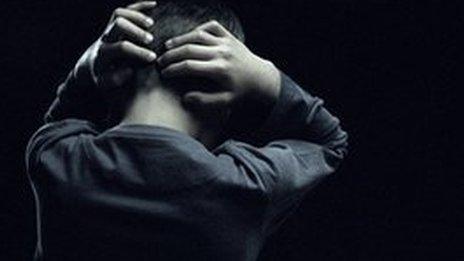Uncomfortable truths of child exploitation in Britain
- Published
.jpg)
Barely a day seems to go by when Britain is not confronted with a new horror involving the sexual exploitation of children. Some of the revelations stretch back decades, others are all too recent.
But there are two common factors. Child victims left exposed and adult perpetrators granted protection.
The activities of the men who preyed on troubled young girls in Oxford over many years, convicted at the Old Bailey on Tuesday, leave a nation shaking a collective head in disbelief once again.
People will look for someone to blame. If only local police, social services, schools, neighbours, community leaders, politicians (add your group of choice) had done more, all would have been well.
But what this series of scandals has forced us to confront is a much more uncomfortable truth. The sexual abuse of vulnerable children is endemic and our society has allowed too many of those responsible to get away with it.
For the most part it is a passive form of protection - suspicions ignored, questions unasked, activities unchallenged. It is easier to do nothing, not to get involved, not to rock the boat. There are none so blind as those that will not see.
Perhaps there is an unconscious and misguided calculation that to act risks damage to something of broader value than the well-being of a single child - public confidence, institutional reputation or community relations.
One wonders if that last concern has a bearing on why we have seen a series of high-profile court cases in which men from predominantly South Asian backgrounds have been convicted of sexually exploiting young girls.
This week it was Oxford. Last week the full details of a similar case in Telford emerged. Before that we had Rochdale, Rotherham, Oldham and Derby.
Hundreds of children and young people have suffered in these towns and others over many years - their almost unimaginable torment apparently invisible to the world around them.
Did concern over how exposure might inflame racial prejudice lead people to stay quiet when they should have spoken out? Far-right groups have been quick to suggest exactly that.
Britain First, an organisation "committed to preserving our ancestral ethnic and cultural heritage", claims to have distributed 20,000 leaflets condemning what they characterise as the "the scourge of Muslim grooming and exploitation".
The British National Party has held rallies and launched a campaign around the issue.
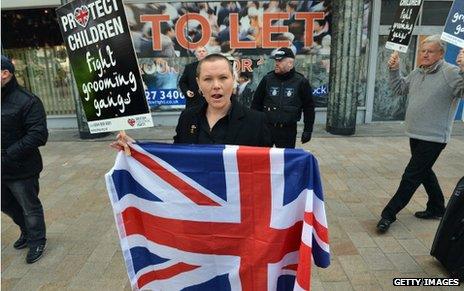
The International Centre for the Study of Radicalisation, based at King's College London, recently detailed how the English Defence League (EDL) had been attempting to link child sexual exploitation with Muslims.
"This 'rape jihad', as it has become known, is a significant concern for the EDL," says the centre's report, Neo-Nationalist Network, external. "Interest has risen since revelations in the British media about the existence of sex-grooming gangs made up of Muslim men of South-Asian origin."
After the conviction for sex trafficking of a group of predominantly Pakistani men in Rochdale last year, the Education Secretary Michael Gove asked the children's commissioner in England to conduct an urgent inquiry.
A briefing paper, external was published in July and a fuller report four months later, external, reflecting on the high-profile court cases that have "mainly involved adult males of British Pakistani origin and white British female victims".
The reason for the spate of similar cases, the inquiry suggested, was that police and other agencies responded to publicity around previous trials by investigating whether the same problem existed in their area.
The authorities were indeed "effective in readily identifying perpetrators and victims with similar individual characteristics", the inquiry panel concluded. "Data is gathered more assiduously on perpetrators identified by professionals as Asian, Pakistani or Kurdish," the report asserted.
But the focus on one particular type of perpetrator, model and approach to child sexual exploitation, disguised "a much more difficult and challenging truth".
The abusers "come from all ethnic groups and so do their victims - contrary to what some may wish to believe", the inquiry panel said. "The failure of agencies to recognise this means that too many child victims are not getting the protection and support they so desperately need."
Of the victims who gave evidence to the inquiry, 42% were described as white British and 28% were from black and ethnic minority backgrounds.
Where the ethnicity of perpetrators was provided, 545 were recorded as white, 415 were recorded as Asian, and 244 were recorded as black. Given that most of the victims were unable to provide details of the ethnicity of their abuser, such data should be treated with caution. But black and particularly Asian perpetrators remain over-represented.
Last week in West Yorkshire, the Islamic Society of Britain, alongside the civil rights movement Hope not Hate, launched the Community Alliance Against Sexual Exploitation. It is an initiative supported by a wide range of Muslim groups.
In Oxford, an imam who knew some of the grooming gang as they were growing up, has talked of the responsibilities of the wider community. "I can say it's a problem of the whole Muslim community and we have to rectify it," said Sheikh Hojjat Ramzy.
"I say to them, my brothers, my sisters, wake up. You are in England. You are British. You must integrate. You must look after the children. There is an issue and we cannot put it under the carpet. Enough is enough."
The cancer of child exploitation is more widespread than our worst fears - no part of our society appears free from its taint. There may be many more uncomfortable truths revealed before we can honestly say we expose perpetrators and protect children, rather than the other way around.
- Published14 May 2013
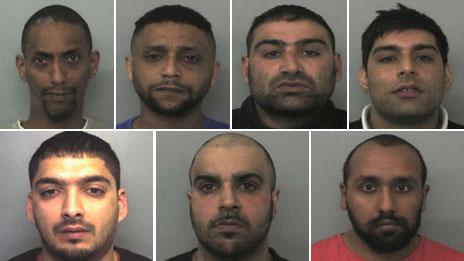
- Published14 May 2013
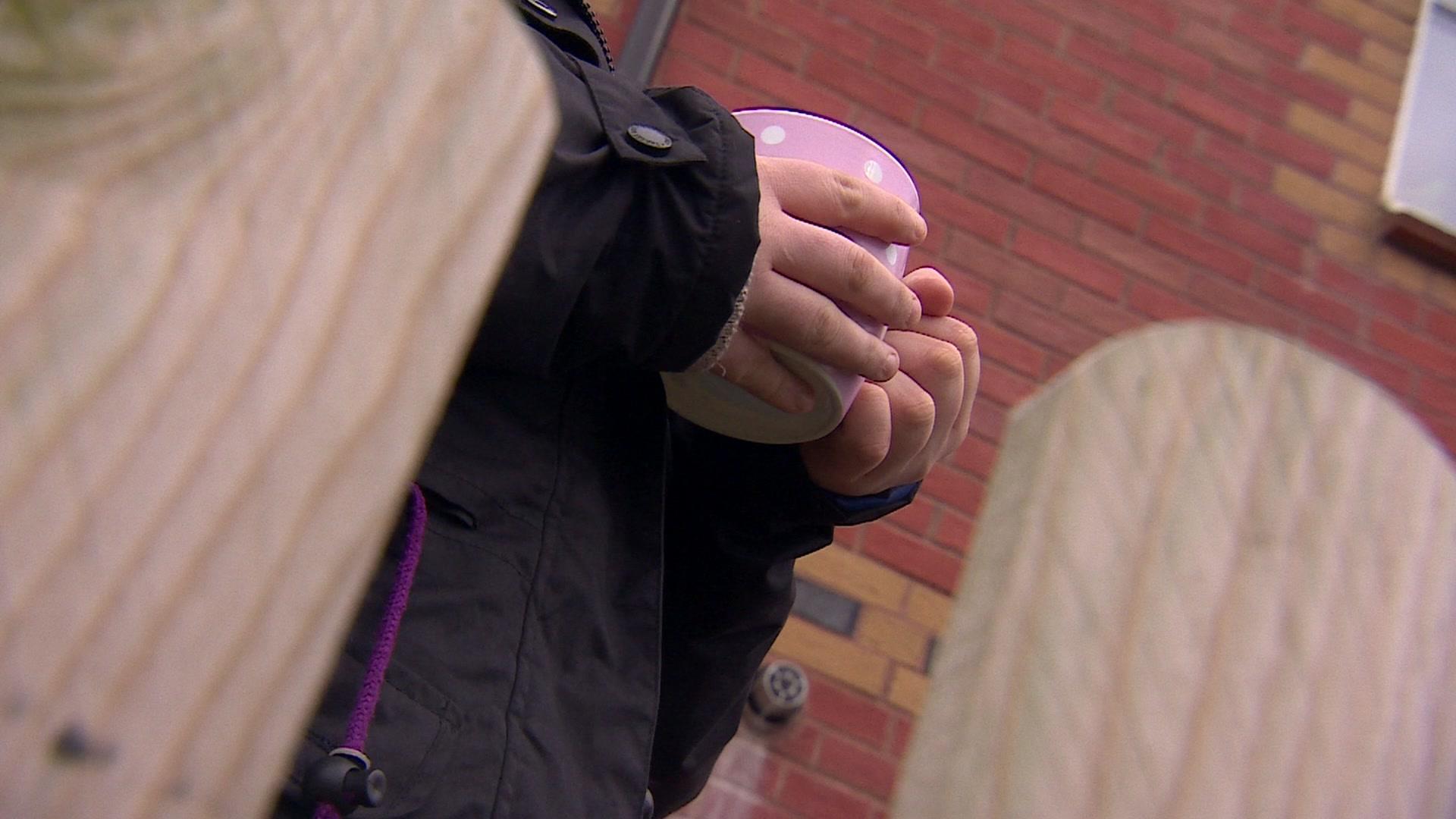
- Published14 May 2013
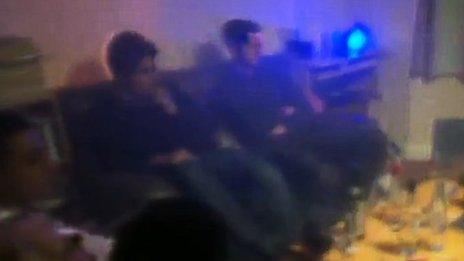
- Published21 November 2012
